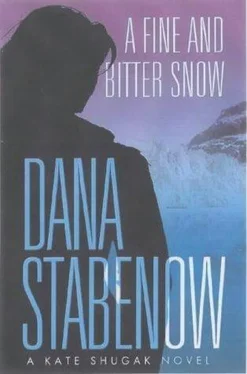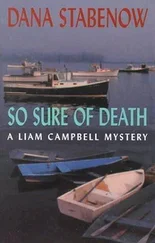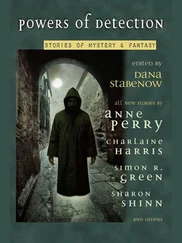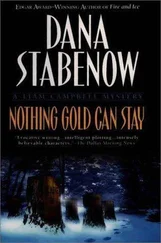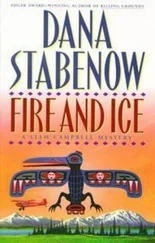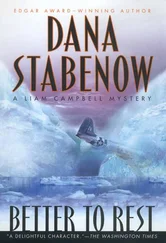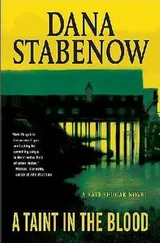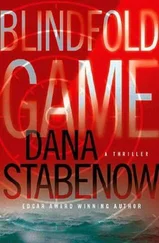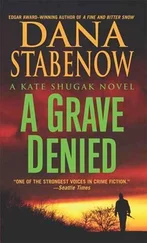No one was.
He kissed her again. But he sure as hell could kiss. When he raised his head, her lips were swollen, her head was buzzing, and her knees were weak. And the smug grin on his face told her that he knew it. “More of that where it came from,” he said, straddling his snow machine. “One bedroom over.”
She stayed where she was, leaning up against the cabin for support, as he raised a hand and roared off into the night.
Back inside, she hung up her parka and worked the pump to fill up a pitcher of cold, clear water from the well located directly beneath the cabin. The well, fed by the water table created by the creek out back. Yet another example of her father’s foresight and ability on this property he had homesteaded before she was born, like the handmade cabin and outbuildings, made of logs carefully fitted together, and as carefully chinked with moss and mud. Stephan Shugak had finished the inside of the cabin the same way, working a winter in Ahtna for a builders’ supply company in exchange for insulation, Sheetrock, and nails, and the hammer to pound them in with. He had sanded the wall paneling by hand after cutting the planks from carefully selected trunks of Sitka spruce that he had felled himself on Mary Balashoff’s setnet site on Alaganik Bay.
It had taken him six years to finish the job; in the process, he had sweated out the last of the memories from the months he had spent in the Aleutians as one of Castner’s Cutthroats. When the last nightmare of the hand-to-hand combat on the beaches of Attu had faded into an uneasy memory, he had judged himself able to take a wife. He chose Zoya Swensen, a lithe woman of his own age, whose family came from Cordova, but like his had originated in the Aleutians, relocated first to Old Harbor on Kodiak Island and from there to Cordova where, it must be said, the first generation of expatriates complained bitterly of the warm climate.
Zoya and Stephan had wanted a house full of children, and instead they got Kate, just about the time they had given up hope of any children at all. This might have explained why first Zoya and then Stephan began drinking. Or it might not. They died so early in Kate’s life that there was much she didn’t know about them. She remembered her father more than she did her mother. He’d taught her to hunt, to use tools to construct and repair buildings and machinery, to chop wood, and to fish. They had built a wooden skiff together, more or less, in the garage the winter she turned five. He’d gotten two bears that winter, too, and they’d tanned the skins.
He hadn’t taught her anything about love. Neither had Abel, Ethan’s father, her guardian after Stephan died. That, she was still struggling to figure out on her own.
A mirror hung on the wall over the sink, and the grave woman reflected there, with the narrow, tilted hazel eyes and the very short dark hair beginning to go a little shaggy around the edges looked tired. Her summer tan had faded, too, leaving her skin looking sallow and stretched over her high cheekbones. Her wide mouth was unsmiling, a tight-lipped line of repudiation and denial. Ruthe and Dina had made that woman laugh. When was the last time she had laughed out loud?
A discordant jangle interrupted her reverie, and she looked over at the couch to see a frustrated expression on Johnny’s face. “Here,” she said, crossing the room and extending a hand. “I’ll show you.”
The guitar was in serious need of tuning, and she got out the tuning fork. It was a tedious process, but Johnny stuck with it. Afterward, she took him through the C and G chords, threw in a little practice on B7 just to keep things interesting. He liked the song “Scotch and Soda,” and she located the Kingston Trio tape and played it for him so he’d know how it was supposed to sound. She tried him on “Where Have All the Flowers Gone,” but although he liked the tune, he made a face at the lyrics. “Blowin‘ in the Wind” was okay, and so was “The Wreck of the Edmund Fitzgerald,” which he misplayed with gusto.
“Okay, enough,” Kate said at nine o’clock. “You going to Ethan’s or you bunking here?”
“Here,” he replied, which meant she didn’t have to roll out the Arctic Cat again to follow him home, and she was grateful. She made more mugs of cocoa with Nestle’s, evaporated milk, and hot water from the kettle, but no marsh-mallows.
“My fingers hurt,” he said.
She took his left hand and looked at the tips of his fingers. They were red and felt warm to the touch. “If you keep it up, they’ll hurt worse. And then you’ll work up calluses and they won’t hurt anymore.”
Unexpectedly, he took her left hand and looked at the tips of her fingers. “You don’t have any.”
“Not anymore.”
“Because you quit playing.”
“Yeah.”
“Why?”
“I couldn’t sing anymore, so there didn’t seem to be much point.”
His eyes went to her throat, to the scar that bisected it almost from ear to ear. “Because of that?”
“Yeah.”
“How did you get it?”
“A guy had a knife. I took it away from him.”
“But he cut you before you did.”
“Yeah.”
“When you were working for Dad.”
“Yes.”
“Does it still bother you?”
“The scar, or not being able to sing?”
“Both.”
“Both,” she replied, “although not as much as they used to.” She put down the mug and picked up the guitar from where it was leaning against the coffee table. The weight of the body on her thigh felt familiar and unfamiliar at the same time, and the neck settled into her left palm with a tentative feeling. She gave the strings a few experimental strums, and without stopping to think about it, launched into “Molly Malone.” Mutt, stretched out on the bearskin in front of the woodstove, raised her head, her ears going up, and fixed Kate with a steady gaze.
Kate’s voice sounded husky to her hypercritical ears and she had to change octaves to hit the high notes. “Yesterday” was even harder to reach, but when she came to the end of the last verse, Johnny said, “That sounded fine. You can sing, Kate.”
Her fingertips were tingling. She stood up and hung the guitar on its hook next to the door, making a mental note to oil the wood before Johnny’s vigorous playing split the instrument in half. She looked over at Mutt, who had lowered her head back to her paws and appeared dead to the world.
“Can I learn to do that?”
“You can learn to do just about anything,” Kate said. “It takes practice, is all.”
He was about to reply, when a yawn split his face. She fetched sheets, blankets, and a pillow, and, in that unnerving fashion of adolescents, he was asleep before she smoothed the blankets over him. Shadows gathered as she turned off three of the kerosene lanterns, turning down the one hanging in the kitchen corner to leave a soft, dim glow in case he needed to get up in the middle of the night. Shadows moved with her across the floor and on the walls.
The book Johnny had been reading was a history textbook. School wasn’t in session for another week. Kate sighed. Johnny was studying as hard as he could because it was his avowed intent to pass his GED when he turned sixteen, thereafter to walk away from school and never go back. She was hoping against hope that he’d fall in love with a girl whose avowed intent was to graduate high school in four years and go on to college afterward.
She stoked the fire in the woodstove, checked the oil stove to see that the pilot light was still burning, and refilled the wood box. After brushing her teeth and washing her face with the last of the water in the kettle, she refilled the kettle and set it on the back of the stove. She climbed the ladder to the loft and lit the lamp that hung next to the bed, undressing by its light, pulling on a nightshirt, and sliding beneath the thick down comforter. She was rereading My Family and Other Animals for what was probably the twenty-seventh time, but she had only lately gone back to full-time reading, and for the present, her preference was for books she had already read and enjoyed, ones with no surprises in them.
Читать дальше
